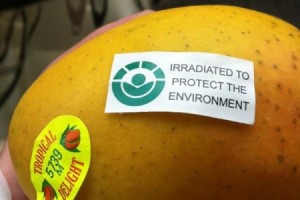A trans-Tasman review into the necessity of labelling food treated with ionizing radiation has drawn a mixed response from industry groups, consumers and activists.
 While most industry groups and corporations that produced submissions to Food Standards Australia New Zealand were supportive of removing the labelling, all but one of the private citizen submissions were against the idea.
While most industry groups and corporations that produced submissions to Food Standards Australia New Zealand were supportive of removing the labelling, all but one of the private citizen submissions were against the idea.
The body will not propose a removal of the current labelling requirements at this stage, but asked respondents whether they thought the countries’ approach to signaling irradiated food was effective or necessary at present.
Irradiation, which is used as both a pest control method and way of extending food’s shelf life, is a rare practice in the two countries, used mainly as a final quarantine measure to prevent the spread of fruit flies.
Some mangoes are treated using irradiation.
Five FSANZ studies over the last 15 years and numerous World Health Organisation reports have found the irradiation process is safe, but food manufacturers are required to add a label informing consumers food has been processed in this way.
The wording of the labelling is not proscribed, though manufacturers can add an optional Radura symbol, the internationally recognised identifier of irradiated food.
